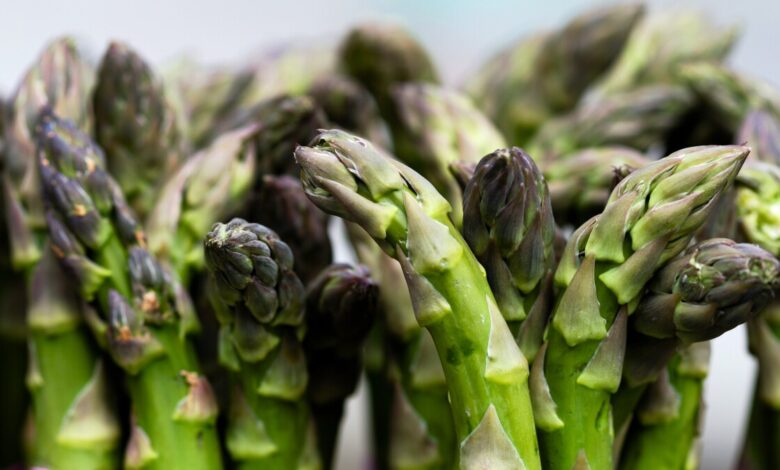How to Harvest Asparagus

Introduction
Harvesting asparagus is an essential skill for any gardener or home grower. This delicious and nutritious vegetable requires proper harvesting techniques to ensure a bountiful yield and continued growth season after season. In this comprehensive guide, we’ll cover everything you need to know about harvesting asparagus, from when to start harvesting to the best methods for cutting and storing your harvest.
Understanding Asparagus Growth
Before diving into the harvesting process, it’s important to understand the lifecycle of asparagus plants. Asparagus is a perennial vegetable that takes several years to reach full maturity. During the first few years of growth, it’s crucial to allow the plants to establish strong root systems without harvesting any spears.
Year 1: Establishment Phase
In the first year of growth, asparagus plants focus on developing their root systems. While it may be tempting to harvest the spears that emerge, it’s best to resist the urge and allow the plants to grow undisturbed.
Selecting the Right Varieties
Choosing the right asparagus varieties is key to successful harvesting. Varieties such as Mary Washington and Jersey Giant are popular choices for home gardens due to their excellent flavor and high yields.
When to Harvest
Knowing when to harvest asparagus is essential for maximizing flavor and yield. Asparagus spears should be harvested when they reach the appropriate size and thickness, typically in the second or third year of growth.
Determining Readiness
To determine if your asparagus spears are ready for harvest, look for spears that are at least 6 to 8 inches tall and about the thickness of your pinky finger. Avoid harvesting spears that are too thin, as they may not have fully developed flavor.
Timing
In most regions, asparagus harvesting season begins in early spring and lasts for several weeks. The exact timing of harvest will depend on your climate and local growing conditions.
Daily Monitoring
During the peak harvesting season, it’s important to monitor your asparagus patch regularly. Spears can grow rapidly, so it’s best to harvest them when they reach the optimal size to prevent them from becoming tough and woody.
Harvesting Techniques
Proper harvesting techniques are essential for maintaining the health of your asparagus plants and ensuring a continuous harvest throughout the season.
Cutting Method
The most common method for harvesting asparagus is by cutting the spears at or just below ground level using a sharp knife or asparagus harvesting tool. Take care to avoid damaging neighboring spears or the crown of the plant.
Angle of Cut
When cutting asparagus spears, aim to make a clean, diagonal cut to promote rapid healing and reduce the risk of disease.
Harvesting Frequency
Asparagus spears can be harvested multiple times throughout the growing season, typically every 2 to 3 days. However, it’s important not to overharvest, as this can weaken the plants and reduce future yields.
Storing Your Harvest
Proper storage techniques are essential for preserving the freshness and flavor of your harvested asparagus.
Refrigeration
For short-term storage, asparagus spears can be wrapped in damp paper towels and stored in the refrigerator for up to one week.
Freezing
To extend the shelf life of your asparagus harvest, consider freezing excess spears. Blanching the spears before freezing helps preserve their color and texture.
Canning
Another option for long-term storage is canning. Canned asparagus can be stored for up to one year and makes a delicious addition to soups, salads, and stir-fries.
Conclusion
Harvesting asparagus is a rewarding experience that allows you to enjoy the fresh flavors of this versatile vegetable straight from your garden. By following the proper harvesting techniques outlined in this guide, you can ensure a bountiful harvest year after year.



